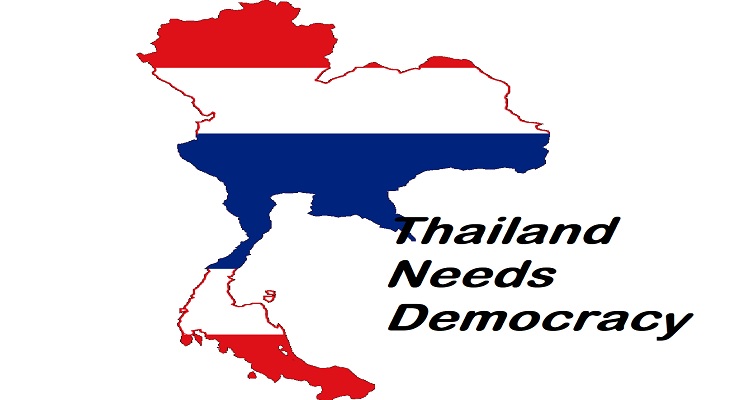
From Human Rights Watch
Thailand’s military government has failed to create conditions for a free and fair national election on March 24, 2019, Human Rights Watch said. The process for forming a new government, in which the junta-appointed Senate will have half the total number of votes for the next government as the elected House of Representatives, severely undermines the right of Thai citizens to choose their leaders.
“Since the 2014 coup, the Thai military has made repeated promises to restore democratic rule, but the generals have set up this election to ensure continued military rule in suits instead of uniforms,” said Brad Adams, Asia director at Human Rights Watch. “The junta has kept repressive laws, dissolved a main opposition party, taken control of the electoral commission, and handpicked a Senate with the power to thwart the will of the Thai people.”
Serious problems with Thailand’s electoral process include:
- repressive laws restricting freedom of speech, association, and assembly;
- media censorship;
- lack of equal access to the media;
- outsized role of a junta-appointed Senate in forming a government; and
- lack of independence and impartiality of the national election commission, leading to the dissolution of a major opposition party.
Article 25 of the International Covenant on Civil and Political Rights (ICCPR), to which Thailand is a party, states that, “Every citizen shall have the right and the opportunity … [t]o vote and to be elected at genuine periodic elections which shall be by universal and equal suffrage and shall be held by secret ballot, guaranteeing the free expression of the will of the electors.” The United Nations Human Rights Committee, which interprets the ICCPR, has stated in its General Comment on article 25 that:
- “Where citizens participate in the conduct of public affairs through freely chosen representatives, it is implicit in article 25 that those representatives do in fact exercise governmental power and that they are accountable through the electoral process for their exercise of that power.”
- “Freedom of expression, assembly, and association are essential conditions for the effective exercise of the right to vote and must be fully protected.”
- “An independent electoral authority should be established to supervise the electoral process and to ensure that it is conducted fairly, impartially, and in accordance with established laws which are compatible with the Covenant.”
- “In order to ensure the full enjoyment of rights protected by article 25, the free communication of information and ideas about public and political issues between citizens, candidates, and elected representatives is essential. This implies a free press and other media able to comment on public issues without censorship or restraint and to inform public opinion.”
“Foreign governments seeking the restoration of democracy in Thailand should publicly state that they will only recognize an election that meets international standards,” Adams said. “Thailand’s elections won’t be considered credible if the media is gagged and critical commentary about military rule is prohibited. The junta should understand that an election that is little more than a preordained victory for military rule will only be treated as a mockery of democracy.”
Full article found at Human Rights Watch.
Leave a Reply